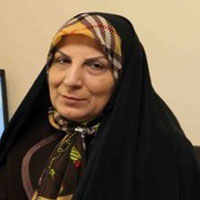Exegetical Studies in Contemporary Iran; the Flows and Approaches
Exegetical studies have expanded greatly over four decades after the foundation of the Islamic Republic. By analyzing the historical and social conditions of this period and existing discourses, this paper aims to deal with the flowology of interpretive studies. So, in Iran's cultural context, two exegetical flows were identified, each of which includes different groups. The first is based on "the sameness of the religion and politics" discourse. This flow believes in this discourse's components, namely "the necessity of the clergies' involvement in the politics", "guardianship of Wilāyat-e faqīh (the Islamic jurist)", and "comprehensiveness of the Quranic rules" and interprets the Quran according to them. The second is a flow that has interpreted the Quran without any consideration or bias toward the mentioned discourse and its components. The theoretical framework of this study is "the reception theory" which emphasizes the role of the interpreter and his historical and social situation in the text interpretation. The results show that in the first exegetical flow that is the advocate of "the sameness of the religion and politics" discourse, different interpretations have been written with philosophical, rational, social, and preaching approaches. Also, the impartial interpretive flow has consisted of different ranges of interpreters with traditional, modern-traditional, the Quran sufficiency, scientific, ethical, educational, and hermeneutic attitudes.
-
An Introduction to the Studies of Orientalists on the Sira of Muhammad(PBUH)
Forough Parsa *
Islamic Studies and Quranic Research in the Contemporary World,



